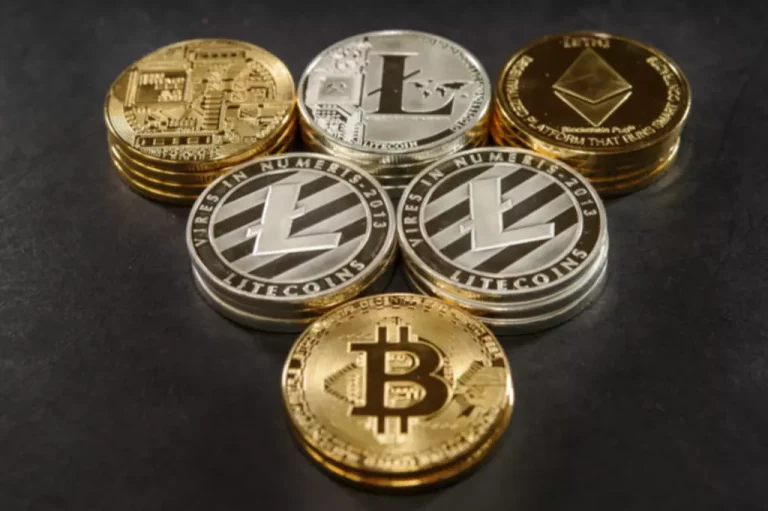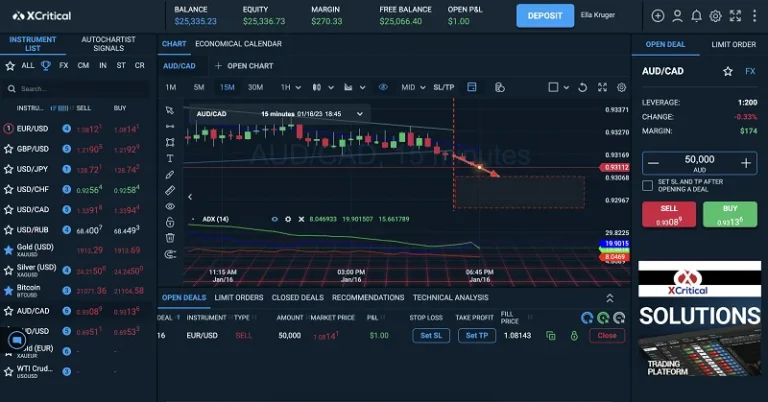Content
It serves as a personal bank for your Bitcoin and other crypto assets, whether in a digital or physical format. Wallet transactions can be immediate, especially with hot wallets, as they are crypto wallet vs exchange processed directly on the blockchain. Exchange transaction speeds vary, with centralized exchanges often quicker due to internal order matching, but they can be affected by network congestion. On the other hand, exchanges may have varying transaction speeds depending on network congestion and processing times. In the case of centralized exchanges, accessing them involves logging into a platform where users can execute trades and manage their portfolios directly. No, a crypto exchange and an exchange wallet are not the same things.
Crypto Wallet vs. Exchange: Which Suits Your Cryptocurrency Strategy
If you’re experienced and comfortable with managing your own security, a crypto wallet may be a better choice. Using exchanges that also act as wallets still make you vulnerable to fraudulent activity. https://www.xcritical.com/ Worse off your account could be compromised in the unfortunate case of hacking. If Bitcoin was being widely used for payments, a Bitcoin wallet is the program you’d use to send and receive Bitcoin for day-to-day transactions, too.
Step 2: Record your new wallet address (or addresses)
If you prioritize security, privacy, and control over your funds, a crypto wallet may be the right choice for you. On the other hand, if you’re an active trader looking for convenience, ease of use, and access to a wide range of cryptocurrencies, an exchange may be more suitable. This comparison chart provides a detailed overview of the key differences, pros, and cons of crypto Proof of work wallets and exchanges. It’s important to note that the choice between a crypto wallet and exchange depends on individual needs and preferences.

What’s the Difference Between a Crypto Wallet and Exchange?
- Consider using a digital wallet for secure storage, and turn to trading platforms when it’s time to trade or exchange.
- Wallets can offer constant access but may require technical steps for transactions.
- Crypto wallets are pieces of hardware or software that serve as a conduit between your holdings and the blockchain, enabling users to send, receive or store crypto.
- That’s why it’s important to regularly withdraw money from exchanges to your individual wallet.
- Always consider your individual needs and habits when evaluating cost-effectiveness.
- Wallets typically charge minimal fees, usually network fees to validate transactions.
What a wallet actually “stores” is your private key, without which no crypto transactions would be possible. Crypto wallets are designed primarily for securely storing and managing digital assets, while crypto exchanges are online platforms where users can buy, sell, and trade cryptocurrencies. Custodial services, typically offered by cryptocurrency exchanges, involve the service provider managing and safeguarding the private keys on behalf of the user.

Step 4: You deposit your Bitcoins back into the exchange in order to sell them for US Dollars.
This means you need two things to get in – maybe a password and a code sent to your phone. Exchanges, though, are more like leaving your cash at the bank. Sure, it’s handy, but you’re trusting them with your digital gold.
These keys can be thought of as the most crucial element of your crypto holdings; without them, accessing or transacting your digital currency is impossible. The importance of crypto wallets in the digital currency ecosystem, therefore, cannot be overstated. They not only facilitate transactions but also serve as a personal security device for your digital assets. Generally, crypto wallets, especially cold wallets, offer higher security for holding digital assets since they give users full control over their private keys. Exchanges, particularly centralized ones, require users to trust the exchange’s security protocols and custodial control. In general, it’s recommended that users store their crypto assets in a crypto wallet that they control rather than on an exchange wallet.
In contrast, cold wallets store cryptocurrencies offline, often on physical devices. However, this makes cold wallets susceptible to physical damage or loss. Accidental damage from dropping or exposure to elements like water or extreme temperatures could compromise the integrity of the device and potentially lead to loss of access to funds. Similarly, misplacing or losing a hardware wallet or paper wallet without proper backup procedures in place could result in permanent loss of funds. A wallet provides more security and control over your assets as you hold the private key.
It is what others use to send funds to your wallet—think of it as your bank account number. Digital wallets, particularly software wallets, are often free to use, and usually come with minimal costs. While there may be network fees for sending assets (known as gas fees in some networks), these aren’t fees charged by the provider itself.
It’s worth noting that you can transfer ownership of cryptocurrency to your non-custodial wallet without it ever having to be “online,” with just the wallet’s public key. In fact, the copy of the corresponding private key could be sitting in a safe and you would still be able to transfer crypto to your wallet with your public key. You probably won’t be surprised if we tell you that it’s better to use wallets for storage of your crypto and use crypto exchanges to buy and sell cryptocurrencies. Crypto wallets are the pieces of software that keep your cryptographic private keys which are necessary to perform (sign) transactions. Your crypto funds are stored on blockchain, not in the wallet. To send these funds, you need to sign the transaction through inputting the private key.

In terms of control and ownership of assets, crypto wallet users retain sole ownership of the private keys that they use to access and manage cryptocurrencies. This ownership grants complete autonomy over funds, empowering individuals to make transactions and secure their assets independently. As an investor, it’s important for you to understand the distinctions between crypto wallets and crypto exchanges. If you want to learn more about crypto wallets and exchanges, read on. It’s important to note that while users do not need a private key to access their account on a centralized exchange, they do not have complete control over their crypto assets. The exchange is the custodian of the user’s crypto assets, which can be a security risk.
On the other hand, withdrawals from crypto exchange are not free and you will lose some money anyway. Keeping money on the exchange is usually free while not as safe as holding them in the wallet. Some wallets will charge you for sending crypto to other wallets (on top of the network fee). Many modern wallets allow users to exchange cryptocurrencies via third-party exchanges. This action doesn’t require leaving the wallet app interface.
This provides greater security and control over their digital assets. While exchanges can be useful for buying, selling, and trading cryptocurrencies, it’s important to be aware of the risks and take necessary precautions to protect your crypto assets. If you buy cryptocurrency on a crypto exchange, it is immediately stored in your exchange-hosted wallet where, typically, the exchange controls your private key. Now you are faced with a decision about what to do with your newly acquired cryptocurrency. On the other hand, crypto wallets can be software- or hardware-based.
The purpose of this website is solely to display information regarding the products and services available on the Crypto.com App. It is not intended to offer access to any of such products and services. You may obtain access to such products and services on the Crypto.com App.
Without a doubt, however, once you learn how to trade Bitcoin and other currencies successfully you will want to look into getting your own private wallet. You might keep a reserve stored in an exchange wallet for daily use, but the majority of your digital funds should be stored safely in a hardware or software wallet. Exchanges are there to conveniently trade cryptocurrency, therefore storing Bitcoin there might be convenient for a short period of time. However, it is highly recommendable to ultimately transfer funds to a wallet where the user is responsible for securing, backing-up and managing his own funds. This is where the importance of knowing the difference between a crypto wallet and exchange comes in handy. As the cryptocurrency landscape evolves, staying informed and adapting to new developments is vital.
